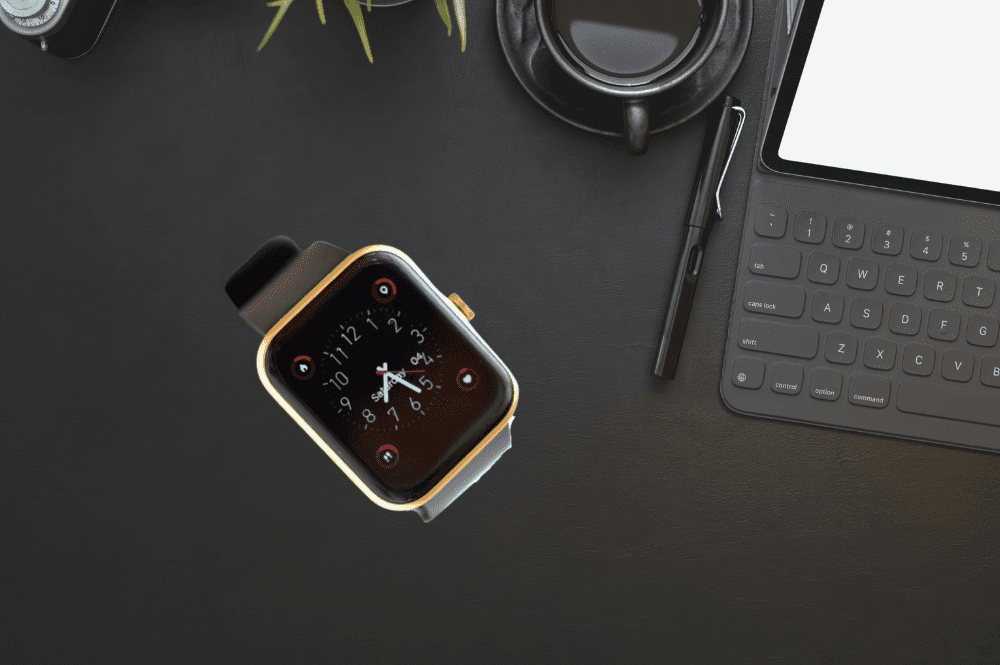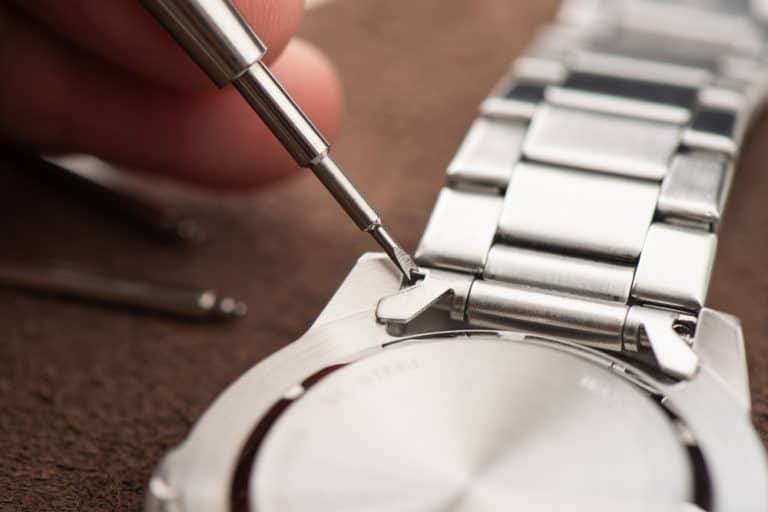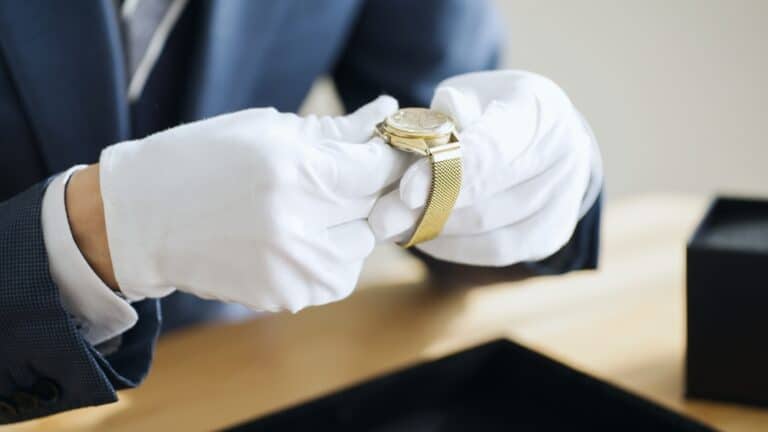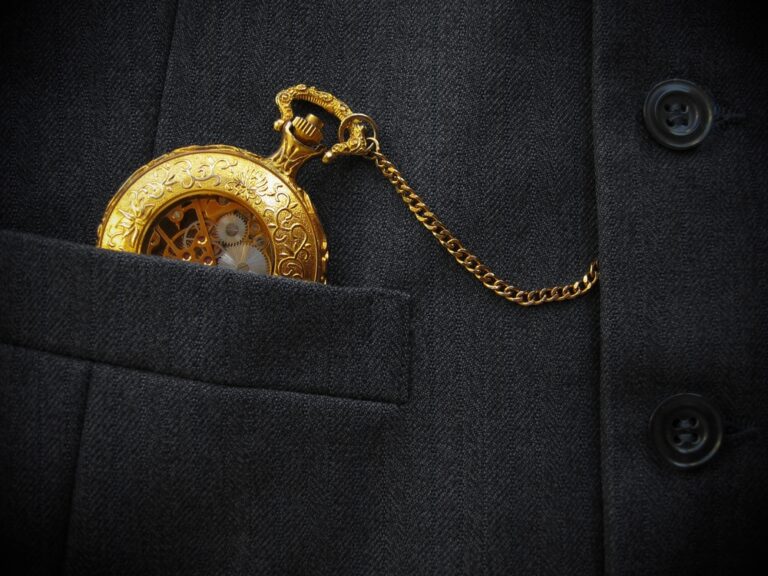Digital watches have been around for the last 100 years, with the first digital mechanical wristwatch appearing in the 1920s and the first LED digital watch prototype appearing in 1970 – but how accurate are these watches and do they lose time?
Digital watches lose time as the battery power decreases, but they will lose less time than mechanical watches. Because most digital watches use quartz-based movement, they only lose about 30 seconds per month or approximately one to two seconds daily.
Digital watches use a quartz crystal to keep time, much the same way as mechanical quartz watches do, except they don’t tick after every second but advance their digital display by one second after each pulse of the crystal – so, let’s take some time and find out how digital watches lose time.
How Does The Quartz Crystal Mechanism Work
Using quartz as the timekeeper in a digital watch allows these watches to keep time so accurately. A piece of a quartz crystal is placed in the electronic circuit in the watch, and a small electric current is passed through it.
The crystal acts as an oscillator and vibrates precisely 32768 times in a second. The circuit can count these vibrations and generate an electrical pulse each second, advancing the display on the watch by one second.
The accuracy and consistency of the quartz crystal are so precise that quartz watches are the second most accurate type of watches available, and the top-quality quartz watches lose about 1 second every 30 years.
The most accurate clocks and watches on the planet are the atomic clocks that use the same principle, but they measure the oscillation of an atom of Caesium 133. They are so accurate that they only lose one second every 50-100 million years!
So, if these quartz watch mechanisms are so accurate, what causes them to lose time?
Let’s look at why a digital watch would lose time, but first, let’s take a brief look at how digital watches display the time on the screen.
How Digital Watches Work – A Quick Overview
Digital watches use an LCD screen to display the time units in hours, minutes, and seconds. To do this, they use small electronic circuits that measure the pulses created from the crystal oscillation and convert that into the appropriate time units on the screen.
The ‘counter’ is the piece of the circuit that controls the display. The pulses from the crystal are measured and counted by the counter and then converted into a binary number – the basis of digital technology.
The microchip in the watch converts the binary number into hours, minutes, and seconds and the display receives a signal that instructs which segments are to be used to show the correct time.
How Do Digital Watches Lose Time
The primary reason that digital quartz watches lose time is that, eventually, the battery will begin to deplete. As it does so, the accuracy of the oscillation from the crystal slows down in minute increments.
This is because the voltage delivered to the display gradually decreases, and this, in turn, causes each second to last longer than it should. As the battery continues to lose energy, the seconds become more prolonged, and this will cause the watch to lose time.
Eventually, the battery will fail, and the watch will stop working altogether, and then it’s time to get the battery changed.
What Other Factors Can Cause A Digital Watch To Lose Time
Aside from the battery, atmospheric influences can also cause a digital watch to lose time, including temperature and air pressure. Warmer air will cause the crystal to become slightly warmer, and this will cause a faster oscillation than the 32768 needed to keep the watch accurate.
This results in the watch running faster as the pulses occur slightly quicker in the warmer conditions, and the converse is true for cold air.
With colder temperatures, the oscillation of the crystal slows down, and this causes the seconds to be slightly longer, so the watch will lose time.
A digital watch worn constantly will provide consistently more accurate time than one that is removed and replaced. This is because the constant and stable temperature of the wearer keeps the oscillation of the crystal constant.
When the watch is worn, removed, and then worn again, the small temperature changes will cause slight variations in the oscillation rate of the quartz crystal.
One of the advantages of a digital watch is that it is mechanically far more straightforward than other types of watches and has no moving parts.
This means that gravity does not affect its performance in terms of timekeeping, so whether you are at the top of a mountain or the bottom of the ocean, the accuracy of the watch will be the same.
Of course, not all digital watches are made equally, so don’t expect your $5 watch to keep the same accurate time as a G-Shock or Seiko.
How Long Do Digital Watch Batteries Last Before It Loses Time
For the most part, a digital watch battery will last anywhere from two to six years, but this greatly depends on whether the watch’s other functions like the stopwatch and backlight are used and how often.
With larger digital watches that offer more advanced features like GPS, fitness, and lifestyle tracking, those watches will have larger batteries to accommodate the extra voltage needed.
There are also digital watches that have tiny solar cells incorporated into the watch’s front face, which are used to replenish the watch battery using solar power. These watch batteries will last much longer than regular batteries without the solar charger.

Conclusion
When you consider the scale of the technology used in digital watches and the accuracy they can deliver with very few moving parts, you can only marvel at the ingenuity of the design and the incorporation of the remarkable properties of quartz to create one of the most accurate timekeeping devices on the planet.
Keeping your digital watch at a relatively constant temperature will ensure it maintains a consistent oscillation and since changing the battery is often not as challenging as with other types of watches, you might even be able to hand your digital watch down to the next generation, and it will still keep almost perfect time for them too!







